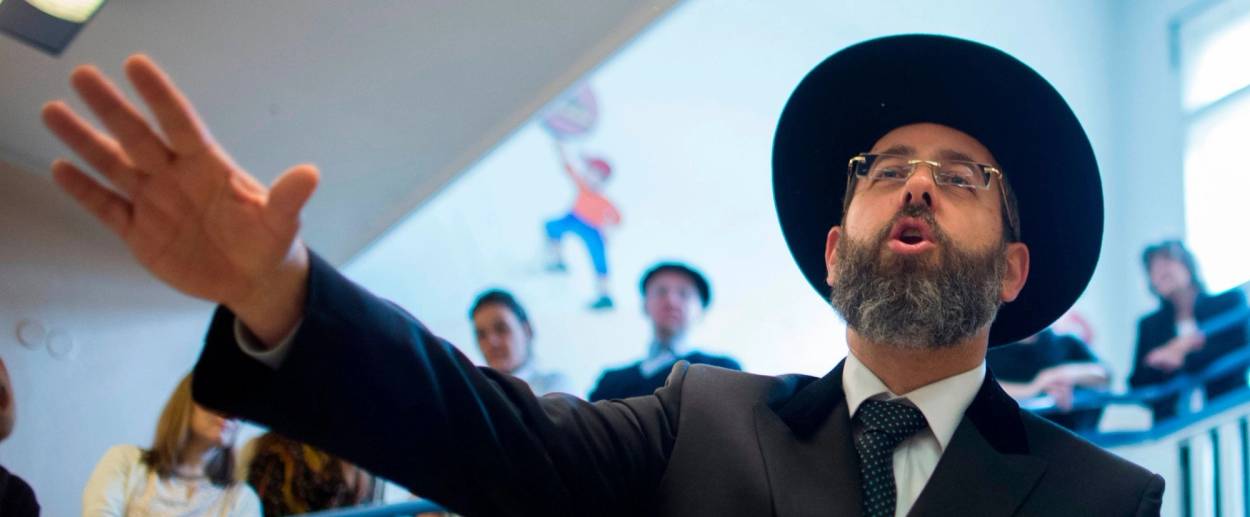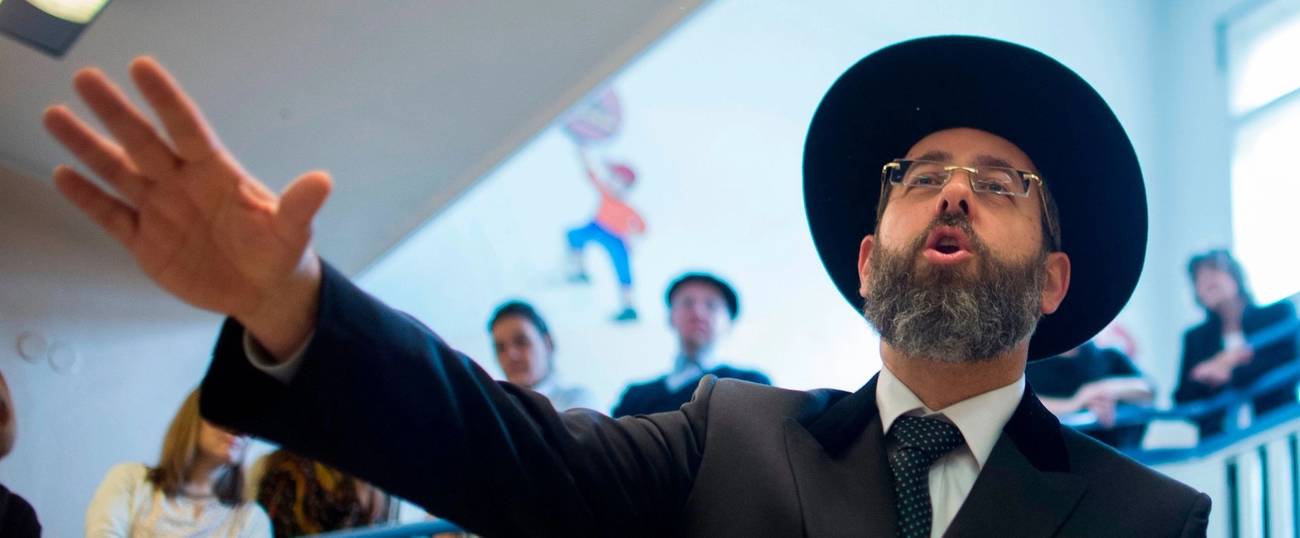Israel’s Ultra-Orthodox Chief Rabbinate Is Quietly Crumbling—And It Just Suffered Two Big Blows
With very little fanfare, Israel’s draconian religious establishment is being hollowed out from within by legislation, the courts, and private actors




Most days, when Israel’s chief rabbinate makes the headlines, it’s for all the wrong reasons. The ultra-Orthodox religious establishment is notorious for its corruption and draconian diktats imposed upon the lives of Jews, whether they be Israeli or American, Modern Orthodox or Reform, Jews by birth or Jews by choice. But because Israeli voters understandably tend to prioritize pressing national security and economic concerns over the nuisances posed by the rabbinate, it has remained entrenched in power for years, protected by the ultra-Orthodox political parties in parliament. Very quietly, however, this has been changing—as the events of the last two weeks reveal.
Number one: At the end of February, Tzohar, Israel’s premier modern rabbinical association, announced that it would be offering its own alternative kosher certification service to the chief rabbinate’s. This development was made possible by Israel’s Supreme Court, which recently created a loophole effectively allowing for private competition to the rabbinate’s monopoly on what counts as kosher. (In a decision worthy of the Talmudic sages, the Court essentially ruled that while restaurants that received alternative certification could not officially present themselves as kosher, they could detail to consumers how they are certified and observe kosher.)
As the kosher certification industry is one of the main sources of income and influence for the rabbinate, its privatization spells the diminishment of both. In the past, small groups like Hashgacha Pratit had tested the limits of the rabbinate’s power by offering rival certification, but with the entry of Tzohar, that competition has officially gone national, and is likely to continue to proliferate.
Number two: On Monday, Israel’s Attorney General revised decades of state policy when he removed part of the Western Wall plaza from the authority of the ultra-Orthodox rabbinic establishment and declared progressive Jewish prayer at its southern end to be a fundamental right.
For decades, the ultra-Orthodox political parties have kept the Wall under sole ultra-Orthodox control and sharply resisted any attempt to allow progressive worship at the site. As such, they refused to apply Israel’s “Law for Protecting the Holy Sites” to Robinson’s Arch, the southern area adjacent to the Wall where liberal Jews typically pray. Not only did Israel’s Attorney General apply that law, however, but he also declared that a “government agent who does not represent the chief rabbinate should be appointed as an ‘administrator’ of the southern prayer plaza.” The move, which was praised by both the Masorti (Conservative) and Reform Movements in Israel, opens the legal door to equal budget and access being granted to the progressive prayer area, all outside the authority of the chief rabbinate.
In sum, two of the rabbinate’s most prestigious powers—authority over kosher certification and over the Western Wall—are being systematically stripped away and parceled out to other actors.
None of this is a coincidence. In fact, it’s part of a deliberate plan being executed by the rabbinate’s foes. Some six years ago, I reported on a behind-the-scenes plot by Tzohar and its allies in Knesset to win the 2013 chief rabbinate elections and install a reformer atop the institution. At the time, I wrote, Tzohar and its many legislative partners offered an ultimatum to the ultra-Orthodox: give us the Ashkenazi chief rabbinate and we will reform from within; if you don’t, we will begin using legislation and the courts to privatize your powers from without. The ultra-Orthodox balked and retained their control over the chief rabbinate, and so its critics have proceeded to enact their Plan B.
As I wrote in that 2012 piece, “The upshot of these political developments is that the coming years will likely herald serious shifts in Israel’s chief rabbinate, whether through the election of a Tzohar chief rabbi, or through legislation that takes religious authority—for marriage, kashrut certification, and other areas—out of the hands of the ultra-Orthodox monopoly and into those of moderates like Tzohar.” We are beginning to see exactly those steps unfold, including non-Orthodox rabbis being paid by the state.
The upshot? Quietly, without fanfare, the Israeli chief rabbinate is being hollowed out from within. While its high profile fights with American and other Jews may be making headlines today, the real story is how it has been losing its battles within Israeli society for its influence tomorrow. If current trends continue, the institution may ultimately become a shadow of itself.
Yair Rosenberg is a senior writer at Tablet. Subscribe to his newsletter, listen to his music, and follow him on Twitter and Facebook.